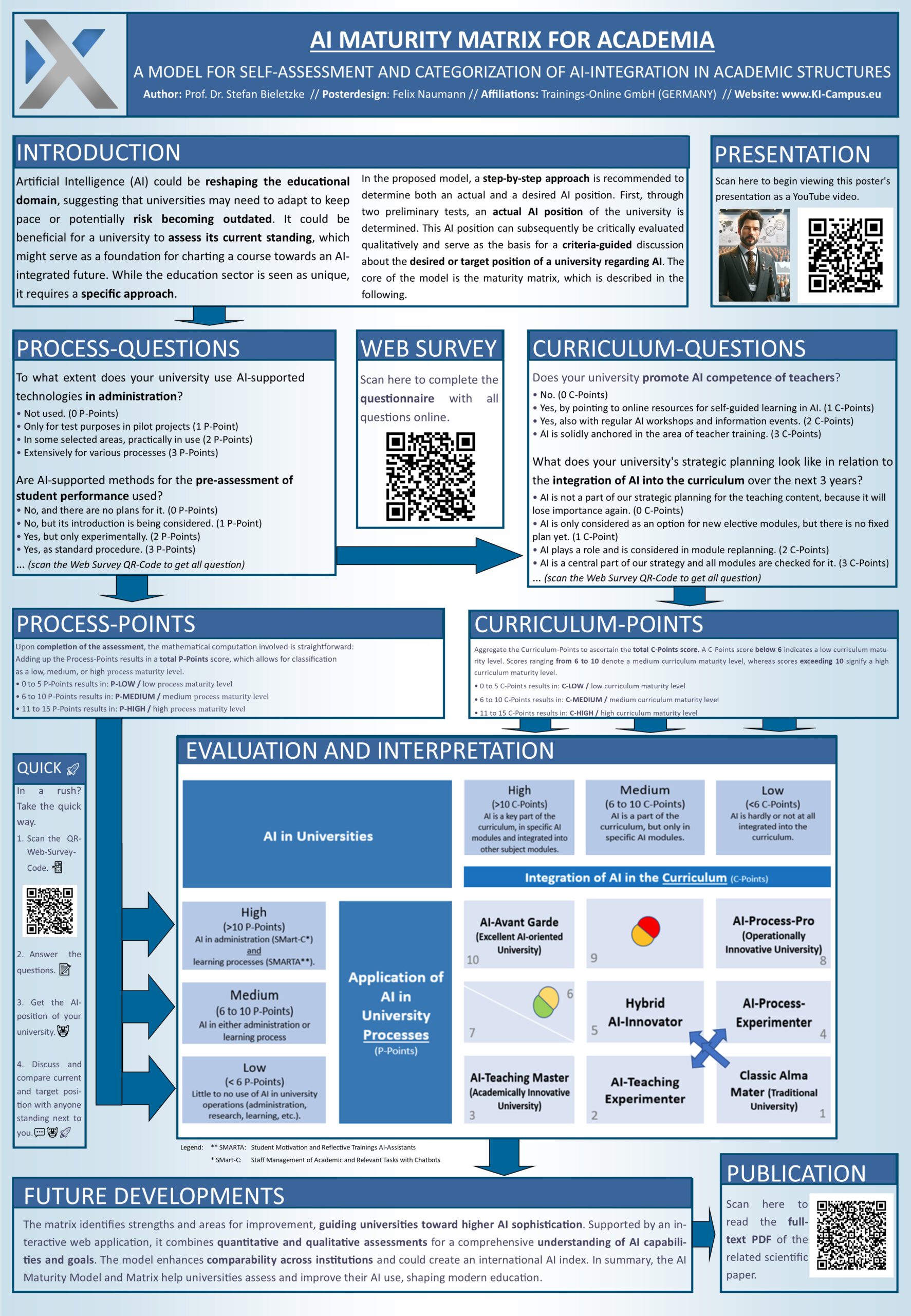
In addition to the already available workshop materials, you can use this poster for free.

In addition to the already available workshop materials, you can use this poster for free.
Together with students who use our chatbots, a hip-hop video was created that well reflects the performance capabilities.
In 1956, at the first AI conference, there was a consensus that machines could simulate intelligence. The debate was whether this would be best achieved through machine learning algorithms or human-written code. Today, many believe that AI will revolutionize university software. However, some argue that human algorithms, which have been effective and legally compliant for years, are still essential.
We believe that human algorithms are crucial for legally significant decisions, such as calculating final grades on a diploma supplement or determining a faculty’s budget. Algorithmic Intelligence, which is code written by humans, remains vital for universities. Human algorithms follow specific rules, are precise, and lack creativity. They don’t alter themselves. When a decision is made by an algorithm, it’s possible to trace back the reasoning, ensuring legal compliance. Plus, you don’t need tons of examples to train a human algorithm.
Consider a new university using generative AI to assign final grades. They would need many examples to train the model. Then, they might end up giving different grades to similar students on different days without understanding why. That would be disastrous.
Therefore, SMARTA focuses on using AI not for decision-making tasks but for areas where creativity is key, especially in generating text. We use various language models like GPT. Instead of the standard interface, we strictly utilize the API. This approach allows us to seamlessly integrate AI into existing systems like a Campus Management System and control both input and output.

“Using the power of AI-Chatbots in Campus-Management-Systems” will be the topic we talk about on the EdTEchNextSummit. There is good and bad news about AI… in the video.
Together with universities from Germany, Greece, Bulgaria, Italy and North Macedonia we take part in the project “ADA”. ADA tries to help female entrepreneurs. And our chatbot named SOFIA tries to make them curious about it.
If you are a female entrepreneur, start a chat with Sofia!
